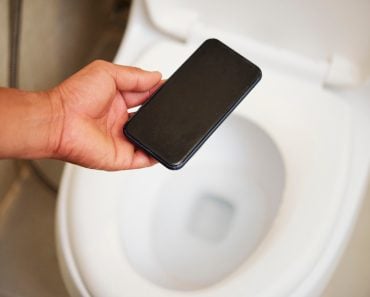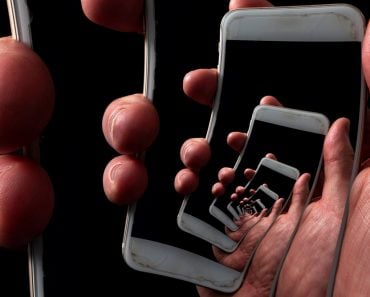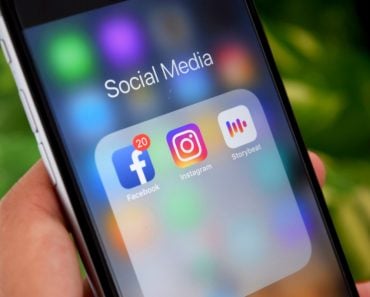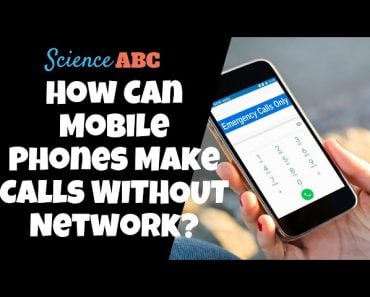Table of Contents (click to expand)
Phubbing is a portmanteau of “phone” and “snubbing”. It refers to the act of prioritizing one’s mobile device over the people who are physically present during social interactions.
In an era defined by digital advancements, the smartphone has risen to prominence as an inseparable companion in our daily lives. Its influence is profound, shaping the fabric of how we interact and connect with one another. At first glance, they enrich our lives by facilitating communication, bridging geographical distances, and strengthening our relationships, but beneath the surface, they have the potential to unleash truly disruptive forces. They are capable of diverting our attention—or rather, stealing our attention. These devices sow distraction and even create emotional distance from our loved ones.

Notifications, social media, and the hype of digital entertainment can easily pull our attention away from the people we are physically present with. The constant buzz of incoming messages creates a distracting barrier between us and those we are surrounded by.
This distraction via smartphone has given rise to a newly occurring phenomenon, one that psychologists are calling phubbing.
Recommended Video for you:
The Many Causes Of Phubbing
Phubbing does not emerge or occur in a vacuum, but instead finds its roots in a complex interplay of societal, psychological, and technological factors.
In our hyper-connected world, the need for constant connectivity has become a cultural norm. Individuals feel compelled to stay glued to their smartphones, fearing they might miss out on important updates or opportunities. This “fear of missing out” (FOMO) is a significant driving force behind phubbing. Numerous studies have established a strong link between FOMO and excessive smartphone use.
Moreover, phubbing can also occur because we want to escape difficult or uncomfortable situations. A study found that both FOMO and worry are positively associated with escapism. In other words, individuals who experience a strong fear of missing out and who worry more are also more likely to engage in escapism. This suggests that these feelings of anxiety coupled with the compulsion to stay connected to digital devices may drive individuals toward escapism as a coping mechanism.

Another reason for phubbing is the addictive nature of smartphones and their associated apps. The need to keep a check on notifications, likes, and messages can be irresistible, regardless of age.
One factor that contributes to the addictive nature of smartphones, and consequently to the phenomenon of phubbing, is the appeal of instant gratification. The immediate access to information, social interactions, and entertainment that smartphones provide taps into the human desire for instant rewards, making this reliance on phones compelling and habit-forming. A study done in 2020 found a correlation between smartphone screen time and a preference for choosing smaller immediate rewards over larger delayed rewards. This suggests that individuals who spend more time on their smartphones may exhibit a tendency toward impulsive decision-making.
They also found that smartphone use is negatively correlated with self-control. This indicates that individuals who engage more with their smartphones may struggle with self-regulation and controlling their impulses.
Consequences Of Phubbing
The habit of using smartphones excessively, especially in public areas or while driving, has raised a number of safety concerns. When people are distracted by their smartphones while walking or driving, it can be life-threatening, not only putting smartphone users at risk, but also endangering the people around them.

Empirical evidence suggests that individuals are more likely to engage in phubbing behaviors with people they are close to (such as family members, close friends, or significant others), as compared to those who are less closely connected (such as acquaintances or strangers).
A comprehensive review of the literature was conducted to understand the impacts of phubbing on people and how it is viewed by others. The key finding of this review was that phubbing has a significant impact on romantic relationships. It intensifies feelings of jealousy between partners, weakens their emotional bond, lowers relationship satisfaction, and increases rates of depression. This suggests that phubbing takes a toll on the emotional well-being and overall quality of romantic relationships.
Research also highlights that phubbing leads to relationship dissatisfaction, a decreased sense of belonging, and feeling less connected to their loved ones. This study highlights the significance of being present and engaged in our interactions with others, especially in a world where smartphones actively demand our attention.

The review also highlights that phubbing is widely perceived as rude, offensive, and a violation of social norms. It undermines perceptions of empathetic concern, closeness, interpersonal trust, and the quality of conversation.
Phubbing therefore becomes more than a minor annoyance; it has significant consequences for people’s emotional well-being and their perception of social interactions. Understanding the predictors and reasons behind phubbing is vital for addressing this behavior and promoting healthier communication habits in the digital age.
Mitigating Phubbing: Finding Balance In Smartphone Use
As mentioned, smartphones can become extremely harmful and damage your relationships. This is why we must take conscious steps to maintain the quality of our relationships and ensure that technology doesn’t overshadow the human connections we hold dear. Here are some strategies to address the issue of phubbing and promote healthier interactions:
- Digital Detox: Dedicate specific times to disconnect from your devices, especially during important conversations or shared experiences. This could mean implementing a “no-phone” rule during meals, while on dates, or when having heart-to-heart conversations. Establishing and sticking to these smartphone-free moments allows you to be fully present and engaged in the real world.
- Set Boundaries: Establish clear smartphone boundaries within your relationship. It’s important to have an open conversation with your partner about when it’s appropriate to use phones and when it’s not. Agree on guidelines that work for both of you. For example, you can decide not to use smartphones after a certain time in the evening or during weekend outings.

- Practice Mindfulness: Be conscious of your smartphone usage when interacting with your partner. Practice mindfulness by focusing on being fully present in the moments you are sharing. When you’re having a conversation or spending time together, resist the urge to check your phone. Instead, direct your attention to your partner and the experience of being engaged and present with them.
- Open Communication: Discuss phubbing openly with your partner. Share your feelings, concerns, and expectations regarding smartphone usage. Create a supportive environment where both of you can express how phubbing affects your relationship. By openly communicating and understanding each other’s perspectives, you can work together to find solutions and make positive changes that will further strengthen your connection.
References (click to expand)
- Sun, C., Sun, B., Lin, Y., & Zhou, H. (2022, January). Problematic Mobile Phone Use Increases with the Fear of Missing Out Among College Students: The Effects of Self-Control, Perceived Social Support and Future Orientation. Psychology Research and Behavior Management. Informa UK Limited.
- Atış Akyol, N., Atalan Ergin, D., Krettmann, A. K., & Essau, C. A. (2021, December). Is the relationship between problematic mobile phone use and mental health problems mediated by fear of missing out and escapism?. Addictive Behaviors Reports. Elsevier BV.
- Schulz van Endert, T., & Mohr, P. N. C. (2020, November 18). Likes and impulsivity: Investigating the relationship between actual smartphone use and delay discounting. (B. Xin, Ed.), Plos One. Public Library of Science (PLoS).
- Capilla Garrido, E., Issa, T., Gutiérrez Esteban, P., & Cubo Delgado, S. (2021, May). A descriptive literature review of phubbing behaviors. Heliyon. Elsevier BV.
- Wolniewicz, C. A., Tiamiyu, M. F., Weeks, J. W., & Elhai, J. D. (2018, April). Problematic smartphone use and relations with negative affect, fear of missing out, and fear of negative and positive evaluation. Psychiatry Research. Elsevier BV.
- Al‐Saggaf, Y., & O'Donnell, S. B. (2019, April). Phubbing: Perceptions, reasons behind, predictors, and impacts. Human Behavior and Emerging Technologies. Hindawi Limited.
- https://doi/10.1111/jasp.12506
- Kim, H.-J., Min, J.-Y., Kim, H.-J., & Min, K.-B. (2017, October 30). Accident risk associated with smartphone addiction: A study on university students in Korea. Journal of Behavioral Addictions. Akademiai Kiado Zrt.
- Tang, A. C. Y., & Lee, R. L. T. (2021, June 5). Effects of a group mindfulness-based cognitive programme on smartphone addictive symptoms and resilience among adolescents: study protocol of a cluster-randomized controlled trial. BMC Nursing. Springer Science and Business Media LLC.












